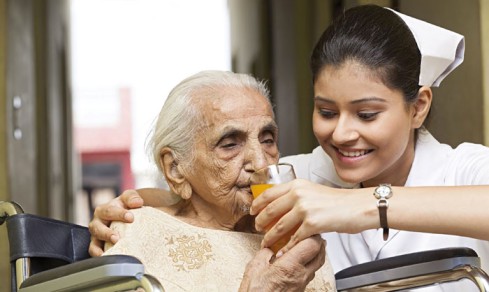Career in Nursing: Courses, Colleges & Specialisation


Nursing is an art; and if it is to be made an art, it requires an exclusive devotion as hard a preparation as any painter’s or sculptor’s work ~ Florence Nightingale
Nursing has always been a popular career, especially since many are inspired by the selfless dedication of English nurse Florence Nightingale. This benevolent personality is also credited with founding the field of contemporary nursing. Nurses are the true caregivers, equipped with a knowledge of basic physiology that makes them the first line of response in case of medical emergencies.
Check out the top 3 reasons why you should begin your educational journey toward a career in nursing today listed below.
Whichever be your personal reason, there is no doubt that nursing is a noble profession which will allow you to make a difference in the lives of hundreds of people…
List of Nursing Entrance Examinations
Candidates must pass an entrance exam to gain admission to a degree programme in nursing before becoming a nurse. The list of important entrance tests that aspiring nurses in India must pass are as follows:
Read: All you need to know about NEET
Specialisations in Nursing
In India, a nursing graduate can choose to specialise in any of a number of areas, depending on their interest. Here is the list of specialisations that a B.Sc. in nursing degree holder can choose to pursue:
These specialisations are available in the form of postgraduate diplomas and greatly enhance one's employability.
Check Out: Building a career in Biotechnology
Nursing Courses
Indian nursing education is accredited and recognised by the Indian Nursing Council (INC). In the discipline of nursing, there are numerous courses, including diploma, undergraduate, graduate and doctoral programmes. For specialisation and training, some private healthcare facilities and hospitals also provide certificate programmes that last between 6 months and a year.
The courses in the field of nursing are as the following:
Diploma courses
UG Degree courses
PG Degree courses
Doctoral courses
Know More: How To Study Biomedical Science
Top Colleges in India for Nursing
Nursing courses are available at the undergraduate and graduate levels at various colleges and universities. The authorities conduct nursing entrance exams for admission to institutions at the college/university, state, and national levels. Here is the list of the top 10 colleges in India for Nursing:
The future of nursing appears brighter than ever with the increased focus on healthcare. A growing number of hospitals, nursing homes, and other healthcare facilities are being built. There is also a constant need for nurses in the nation due to the continuous rise in the population and the need for better healthcare facilities. A career in nursing is something you should definitely think about if you enjoy helping those in need and are looking for a job that will be fulfilling, stimulating, exciting, respected, and have a significant impact on the world.